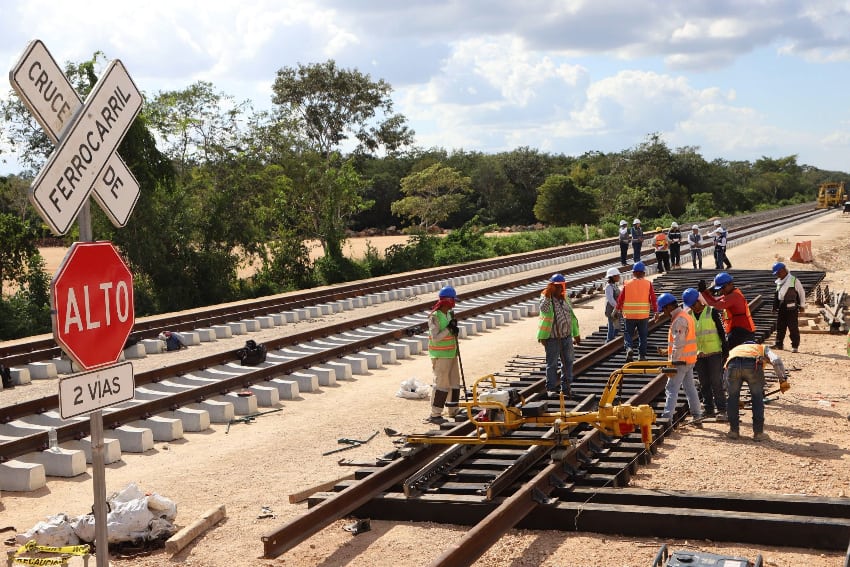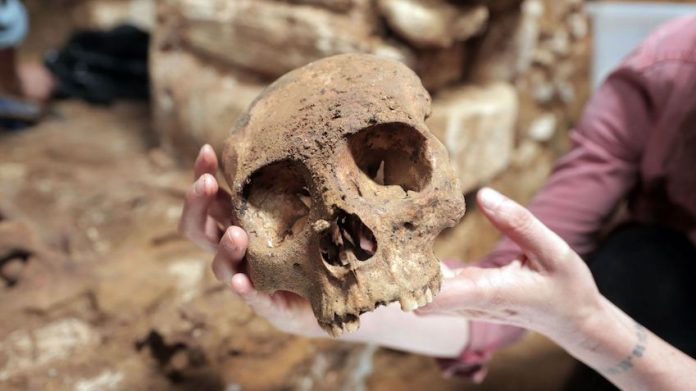The National Institute of Anthropology and History (INAH) is close to announcing the clearance of the final archaeological obstacles facing the construction of the Maya Train project.
INAH general director Diego Prieto Hernández said at President López Obrador’s morning press conference that sections 1 to 5 (from Palenque to Tulum) and 7 (from Chetumal to Escárcega) already have approval for construction by INAH. Section 6’s review is 95.5% complete, with only two locations left to inspect.

“This means that work can advance while we continue rescue tasks regarding the collection, cleaning and classification of archaeological materials, restoration of pieces to be put into museums, and, of course, the preparation of academic reports…” Prieto said.
A vast archaeological rescue program has preceded the construction of the Maya Train, presided over by INAH and employing around 500 archaeologists. It aims to ensure the major new railroad loop on the Yucatán Peninsula — a flagship project of President López Obrador’s administration — does not damage the region’s rich material heritage.
To date, Prieto said, the program had registered and preserved:
- 56,034 structures, including dwellings, foundations and roads
- 927,162 ceramic fragments
- 1,817 relatively intact artifacts
- 741 artifacts under restoration
- 527 human remains
- 1,307 natural features associated with human groups
The next stage of the project will focus on improving infrastructure and services in existing archaeological zones, preparing them for the rise in tourism expected as a result of the train.
Two museums – one restored, and one purpose-built for Maya Train finds – are being developed near Mérida, to house the archeological pieces recovered by the program.
The Maya Train is due to begin operations on Dec. 1, three and a half years after construction officially began in May 2020. However, the project has faced serious obstacles and delays due to engineering issues, lack of materials and legal challenges by environmental groups.
With reports from La Jornada Maya
